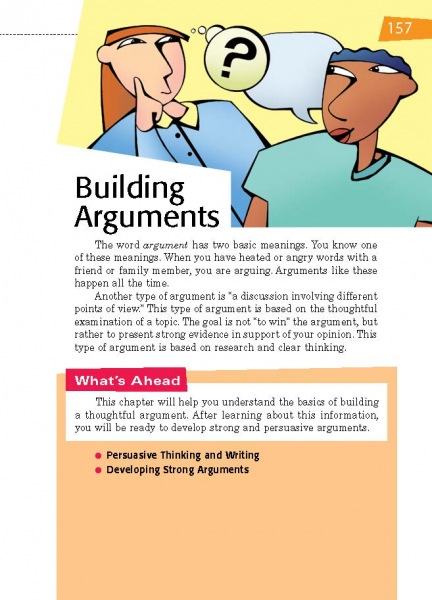Page 157 from

Start-Up Activity
Ask for a volunteer to read page 157 aloud. Then discuss the two different types of arguments. During your discussion, inform students that the ability to build academic arguments is an important skill that they can learn. And to do so, they will need to think critically about topics that matter to them.
Next, have students write a list of opinion statements about things happening in your school. Model an opinion statement of your own so they get a sense of what you are asking for. Explain that this chapter will teach them how to turn an opinion into a compelling argument.
Think About It
“There is no point asserting what the heart cannot believe.”
—Aleksander Solzhenitsyn

Start-Up Activity
Ask for a volunteer to read page 157 aloud. Then discuss the two different types of arguments. During your discussion, inform students that the ability to build academic arguments is an important skill that they can learn. And to do so, they will need to think critically about topics that matter to them.
Next, have students write a list of opinion statements about things happening in your school. Model an opinion statement of your own so they get a sense of what you are asking for. Explain that this chapter will teach them how to turn an opinion into a compelling argument.
Think About It
“There is no point asserting what the heart cannot believe.”
—Aleksander Solzhenitsyn